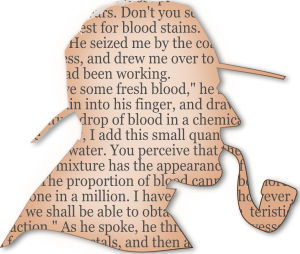History as Mystery & Questions of Historical Significance
9 Mars 2014 - 8:57pm
 Kate provided a fantastic introduction to this month’s focus on using mysteries in history education, especially through the Great Unsolved Mysteries in Canadian History websites. I am involved in the development of a new mystery site (but it isn’t ready yet!) on the disappearance of the Franklin Expedition in the Arctic. Until that resource is ready you can learn more about it at the Prince of Wales Northern Heritage Centre.
Kate provided a fantastic introduction to this month’s focus on using mysteries in history education, especially through the Great Unsolved Mysteries in Canadian History websites. I am involved in the development of a new mystery site (but it isn’t ready yet!) on the disappearance of the Franklin Expedition in the Arctic. Until that resource is ready you can learn more about it at the Prince of Wales Northern Heritage Centre.
One of the interesting issues that arises in facing history through a mystery, and that also provides a useful pedagogical approach, is: What makes a mystery historically significant? To whom is the mystery significant? To whom is the answer to the mystery significant? Might some people like to see the mystery remain unsolved? How has the significance of the mystery waxed and waned through time? What about the ‘sub-mysteries’ that every mystery contains - which are most important? What resources should be devoted to finding evidence and formulating answers? How might the process of investigation into a mystery have significance itself for making history?
Using the Historical Thinking Concept of Historical Significance as a way of introducing a mystery - or summing it up at the end of an historical inquiry - could be a great way to engage students in formulating a passionate essay or debate. It could be powerful to choose a mystery in which stakeholders hold differing views about the significance of the outcome, both in the past and in the present, and encourage students to defend or critique those positions. This also may lead students into the concept of Historical Perspective Taking.
Two example lesson plans or MysteryQuests from the GUMICH collection on along this line of inquiry include:
Jerome: The Mystery Man of Baie Sainte-Marie - Worthy of Attention?
Death on a Painted Lake: The Tom Thomson Tragedy - Is Tom Thomson Famous because he Died Mysteriously?
What are some other mysteries that could be used to engage with the concept of historical significance? How else could teachers use mysteries to support student thinking about historical significance? What student assignments have you used to help students consider significance using a mystery?
Photo credit: openclipart
- Se connecter ou créer un compte pour soumettre des commentaires

